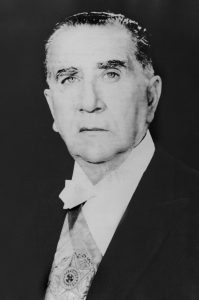Pyeongan Hong
Soccer and Politics in Brazil
As known widely, soccer is not simply a sport. It has more meaning to the world. It affects politics, economics, and society. It unites people and it unites countries. Historically, soccer has been the most famous sport in Brazil, being its culture and to an extent, life. First started in 17th century, soccer has been the most important pastime in the country. As a result, players who participate in international competitions were put in a huge stress in order to succeed. Politicians were highly involved in Brazilian soccer. They used it as a mean of controlling their politics and society. Although soccer should remain as a sport, government in Brazil used soccer to manipulate society. For example, in 1970 World Cup, Brazilian squad won the world cup. However, at that time, Brazil was going under domestic political insecurity, ruled under military leader Emílio Médici. Government sacked the manager of the team because manager refused to use certain player in game. Still considered the greatest team in the World Cup, Brazil won the world cup easily. After the win, the Brazilian government awarded the squad and used their success to promote a campaign.
As shown above, the government’s interest in soccer as a mean of social and political control was prevalent. Soccer was heavily embedded in people’s cultures and lives. However, it was not the same in the beginning. The government only focused on economic benefits through soccer such as taxes and more expenditures. Starting 20th century, interest in soccer became larger both by the people and the government. This paper will focus on how in soccer was treated in terms of politics up to 20th century and starting 20th century how it was a turning point for both the government and the people.
Soccer did not affect the politics and the people negatively. It was a method to united people in the country and stop the violence. It caused revolutions socially, politically and economically. Although it may not be the only cause, soccer was the one of the causes that saved Brazil from its crisis. To dig deep into the argument, multiple articles will be discussed. Articles are based on how Brazil was able to escape from its crisis due to soccer. The winning of World Cups in 1970 and 1982 happened when the country was going through the hardest time. Unlike other sports, winning the World Cup brought changes in politics and society. Drawing comparison with other country, South Korea went to semi finals in 2002 World Cup. It drastically changed Korea in terms of society, politics and economics. It united people and changed the power in the government, ultimately leading to democracy.
Brazil is mostly known for its incredible players in soccer field. Their huge success in the World Cups led to a political change in their country. However, soccer was also used as a mean of social and political control. The significance of soccer in Brazil cannot be underestimated since it was a fuel for the unition and change. It awakened people and society, getting rid of military dictatorship in Brazil. Soccer is not only a pastime for Brazil, but also it is their culture, politics and life.
Sources:
Skidmore, Thomas E. The Politics of Military Rule in Brazil, 1964-1985. New York: Oxford University Press, 1993.
Shirts, Matthew. “Playing Soccer in Brazil: Socrates, Corinthians, and Democracy.” The Wilson Quarterly (1976-) 13, no. 2 (1989): 119-23. http://www.jstor.org/stable/40257497.
“Brazil Travel Guide – History of Soccer.” Brazil Travel. http://www.braziltravelinformation.com/brazil_sports_soccer_history.htm.
American Anthropological Association. “Brazilian Football as a Means of Reflecting Upon Brazilian Society.” The Huffington Post. June 17, 2014. https://www.huffingtonpost.com/american-anthropological-association/brazilian-football-as-a-m_b_5498879.html.
Young, James. “How Soccer Culture Made Its Way Into Brazils Political Crisis.” Remezcla. 2016. http://remezcla.com/features/sports/soccer-brazil-political-crisis/.
Humphrey, John, and Alan Tomlinson. “Reflections on Brazilian Football: A Review and Critique of Janet Lever’s “Soccer Madness”.” Bulletin of Latin American Research 5, no. 1 (1986): 101-08. doi:10.2307/3338786.
FELLAY, SARAH. “Saved by the Goalkeeper: Soccer and Elections.” Harvard International Review 36, no. 1 (2014): 32-35. http://www.jstor.org/stable/43649245.


